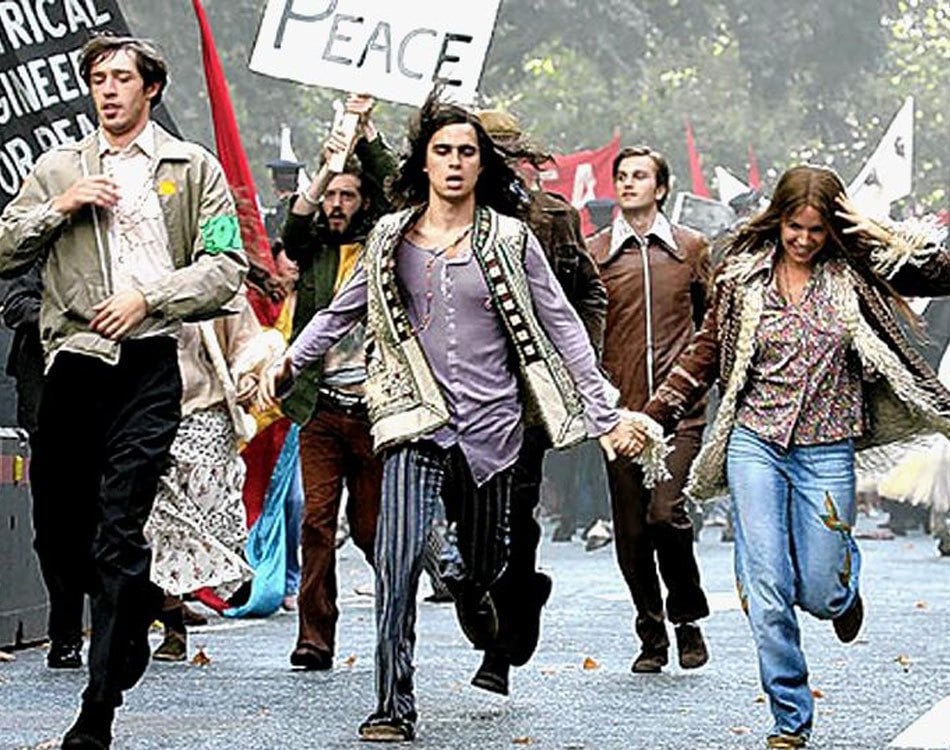American New Wave is movement in american cinema that took place around the late 60's and 70's. "It refers to a post-Hays liberation of creativity ushered in by a generation of young filmmakers who took the primary authorial role away from studios and into their own hands." (Filmmakers Handbook, 2019). This new style of filmmaking completely opposed what the mainstream cinema was doing. Movies were no longer made with the sole purpose of generating profit and instead a new artistic approach to film making was introduced, this allowed for more unique films to be created that allowed directors to express their ideas into a film, with these being based on social issues or even ideas from the directors.
Some of the first movies to be counted under this category of American New Wave were: Arthur Penn’s Bonnie and Clyde (1967) and Mike Nichols’ The Graduate (1967). These films were unique to the time with them both ignoring taboos while focusing on violence and sex, and appealing to a younger audience, with Bonnie and Clyde being a social commentary on violence and hypocrisy in america during the 60's. "These films were centred on complex themes with morally ambiguous messages, reflecting the nonconforming generation disillusioned by Vietnam." (Filmmakers Handbook, 2019).
Context
During the Cinematic New Wave, America was in the midst of the Vietnam war, this was at this time the hippie movement was popular, this promoted peace over violence and members were often easily identified through their bright clothing. The group were often linked with the use of hallucinogenic drugs. This affected how movies were made with a bigger focus on conveying social messages based on exposing american hypocrisy and talking about other social issues.
Movies List
Bonnie and Clyde (1967)
Apocalypse Now (1979)
Taxi Driver (1976)
Research Notes
"Over the course of the 1960s the counter culture, youth activism, and civil rights movements generated widespread rejection of standard Hollywood fare at the time. For decades there had been standards, censorship, and deeply held beliefs about what mainstream American film had to look like. The status quo would fail in the long run of the 1960s and 1970s as films tailored to studio executives’ norms became droll.
By 1969, when Easy Rider proved an unlikely hit, the American New Wave could be said to be the dominant force in American filmmaking. The moniker “New Hollywood” suggests how mainstream these eclectic, challenging, and youth centric films became for the next decade.
Incidentally, Roger Ebert’s review at the time for the seminal Easy Rider, captures much of the movement. Ebert points to three items which characterized films of the American New Wave. First, a sudden generational disjunction captured in the difference between Henry Fonda’s career and Peter Fonda’s new film. Second, a whole cloth reworking of popular genres like westerns and motorcycle films. These were genres with a lot of appeal, but underserved film grammar. Which leads to the third point defining the American New Wave, an apparent rejection of straightforward storytelling.
American New Wave films tend to fixate on character action and scenes with intense thematic resonance. Dialogue frequently feels unnecessary, and gives way to scenes of violence and high speed pursuits as is the case in Easy Rider. Similarly Nashville (1975), like many Robert Altman films, intimates a place and culture while overwhelming viewers with an ensemble cast. Both these paradigm films, Easy Rider and Nashville, seem ephemeral about their subject. The result, as Ebert writes, is that “the heroes are suspended in an invisible story, like falcons on an invisible current of air. You can’t see it, but it holds them up.”"(Jordan 2018).
Source List
Filmmakers Handbook (2019) [Online]
Available from:
http://screenprism.com/insights/article/the-filmmakers-handbook-what-is-the-new-hollywood-movement
Jordan, S., (2018) The New Perspectives in the American new wave [Online]
Available from:
https://facets.org/blog/exclusive/lists/essentials/the-new-perspectives-in-the-american-new-wave/
Movies List
Bonnie and Clyde (1967)
Apocalypse Now (1979)
Taxi Driver (1976)
Research Notes
"Over the course of the 1960s the counter culture, youth activism, and civil rights movements generated widespread rejection of standard Hollywood fare at the time. For decades there had been standards, censorship, and deeply held beliefs about what mainstream American film had to look like. The status quo would fail in the long run of the 1960s and 1970s as films tailored to studio executives’ norms became droll.
By 1969, when Easy Rider proved an unlikely hit, the American New Wave could be said to be the dominant force in American filmmaking. The moniker “New Hollywood” suggests how mainstream these eclectic, challenging, and youth centric films became for the next decade.
Incidentally, Roger Ebert’s review at the time for the seminal Easy Rider, captures much of the movement. Ebert points to three items which characterized films of the American New Wave. First, a sudden generational disjunction captured in the difference between Henry Fonda’s career and Peter Fonda’s new film. Second, a whole cloth reworking of popular genres like westerns and motorcycle films. These were genres with a lot of appeal, but underserved film grammar. Which leads to the third point defining the American New Wave, an apparent rejection of straightforward storytelling.
American New Wave films tend to fixate on character action and scenes with intense thematic resonance. Dialogue frequently feels unnecessary, and gives way to scenes of violence and high speed pursuits as is the case in Easy Rider. Similarly Nashville (1975), like many Robert Altman films, intimates a place and culture while overwhelming viewers with an ensemble cast. Both these paradigm films, Easy Rider and Nashville, seem ephemeral about their subject. The result, as Ebert writes, is that “the heroes are suspended in an invisible story, like falcons on an invisible current of air. You can’t see it, but it holds them up.”"(Jordan 2018).
Source List
Filmmakers Handbook (2019) [Online]
Available from:
http://screenprism.com/insights/article/the-filmmakers-handbook-what-is-the-new-hollywood-movement
Jordan, S., (2018) The New Perspectives in the American new wave [Online]
Available from:
https://facets.org/blog/exclusive/lists/essentials/the-new-perspectives-in-the-american-new-wave/

No comments:
Post a Comment